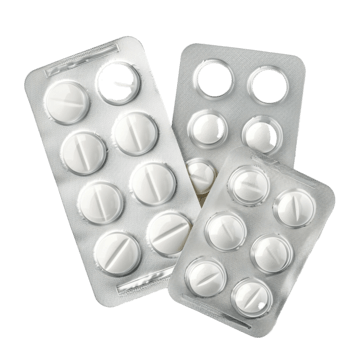Nifedipine

Nifedipine 10mg, 20mg, 30mg, 60mg
Nifedipine is a calcium channel blocker primarily used to treat high blood pressure and angina (chest pain) by relaxing the blood vessels, allowing for improved blood flow and reduced heart workload. It works by inhibiting the influx of calcium ions into vascular smooth muscle and myocardial cells, thereby widening blood vessels and lowering blood pressure. Nifedipine is often prescribed for hypertension and chronic stable angina, and may help alleviate symptoms of Raynaud’s phenomenon as well.
Order NowDescription
Nifedipine is a calcium channel blocker that is commonly used to treat high blood pressure (hypertension) and angina (chest pain). It works by relaxing blood vessels, allowing blood to flow more easily, thereby lowering blood pressure and reducing the heart’s workload.
Uses / Indications
- Hypertension (high blood pressure)
- Angina pectoris (chest pain due to heart disease)
- Management of certain types of Raynaud’s phenomenon (reduced blood flow to fingers and toes)
- Preventing certain heart conditions in specific patient populations (as advised by a physician)
Dosage and Administration
Adults:
The typical starting dose for hypertension is usually 30 mg, taken once daily. For angina, the dosage may vary based on physician recommendations.
Note: Dosage may vary based on individual health conditions or doctor’s advice.
How It Works (Mechanism of Action)
Nifedipine inhibits the influx of calcium ions through the slow channels of cardiac and smooth muscle. This leads to vasodilation (widening of blood vessels), decreasing vascular resistance, and ultimately reducing the workload on the heart while increasing the supply of oxygen to the heart muscle.
Side Effects
Common side effects:
- Headache
- Dizziness or lightheadedness
- Flushing
- Swelling of the ankles or feet
Rare/serious side effects:
- Fast or irregular heartbeat
- Severe allergic reactions (rash, itching, swelling)
- Worsening of angina symptoms
Seek medical attention if serious side effects occur.
Precautions / Warnings
- Inform your doctor if you have a history of heart problems, liver disease, or are pregnant/breastfeeding.
- Use caution when combining with other medications that can lower blood pressure.
- Sudden withdrawal should be avoided; consult your doctor for a gradual tapering plan if necessary.
Drug Interactions
May interact with:
- Other antihypertensive medications
- Certain antibiotics or antifungals
- Grapefruit juice (may increase nifedipine levels in the blood)
- Medications that affect liver enzymes
Always inform your healthcare provider about any other medications or supplements you’re taking.
Storage Instructions
- Store at room temperature (20°C–25°C / 68°F–77°F)
- Keep away from moisture, heat, and direct light
- Keep out of reach of children
Missed Dose / Overdose
Missed a dose?
Take it as soon as you remember. If it’s almost time for your next dose, skip the missed one. Do not double up.
Overdose symptoms:
- Severe hypotension (very low blood pressure)
- Dizziness or fainting
- Rapid heartbeat
- Nausea or vomiting
Contact a poison control center or seek emergency medical help immediately.
Contraindications
- Allergic to Nifedipine or other dihydropyridine calcium channel blockers
- Severe hypotension or cardiogenic shock
- Pregnancy (especially in the last trimester, unless advised by a healthcare provider)
Brand Names / Alternatives
- Adalat
- Procardia
- Nifedical
- Generic name: Nifedipine

